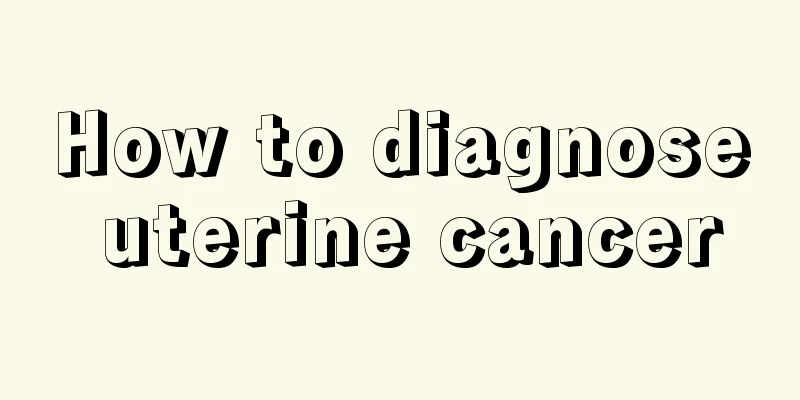How to provide good postoperative rehabilitation care for liver cancer? Guide to postoperative home care for liver cancer

|
The awareness of liver cancer in my country is particularly high, and the number of deaths each year is no longer a small number. If you are unfortunately diagnosed with this disease, how should family members take care of the patient? Good care is very important for the patient's later recovery. Let's take a look at the nursing measures for liver cancer. Postoperative care for liver cancer: 1. Postoperative care for liver cancer: 6 to 24 hours after the operation, take a semi-recumbent position when awake, close your eyes slightly, take a deep breath through your nose, and guide the patient to do flexion and extension exercises for the upper limbs, elbow joints, and shoulder joints, and flexion and extension, inversion, and eversion exercises for the toes, toes, ankle joints, knee joints, and hip joints. 4 times a day, 10 times each time. On the first day after surgery (24 to 48 hours), increase the amount of activity in the first stage, and add more activities, take a semi-recumbent position, increase chest expansion exercises, 2 to 3 times a day, 5 times each time, and others can help turn over if you cough, and tap your back once every 2 hours. On the second day after surgery (48-72h), guide the patient to actively move his limbs, once every 2h, each time for 5-10min. If the patient is old and weak or unable to get out of bed, he should be trained to lift his hips. The method is to bend his legs, support the bed with his arms, and repeatedly lift his hips, 50-100 times a day, and gradually increase the number of times until ventilation. This method can be used for other surgeries such as stomach, bile duct, and pancreas. It has a good effect on promoting intestinal peristalsis, early ventilation, and preventing intestinal adhesion. On the third day after surgery, remove the double cannula, ask the patient to sit on the edge of the bed, let his legs hang down, actively move his limbs, head and neck joints and muscles, and walk with the support of others as appropriate. Pay attention to preventing and treating colds that aggravate the condition. Practice getting out of bed should start with standing on the edge of the bed, and gradually walk with the help of the bed, 2-3 times a day, each time for 15-20min. Respiratory care after liver cancer surgery Due to the large surgical trauma, elevated diaphragm, and limited respiratory movement, if the patient has difficulty coughing and expectoration, nebulization inhalation can be given twice a day. After each nebulization inhalation, turn over in time, tap the back, guide the patient to press the incision with both hands, take a deep breath and cough, and encourage the patient to cough up the sputum. Psychological care after liver cancer surgery Due to the friction between the surgical incision and the drainage tube, pain may occur, causing physical pain to the patient. The analgesic pump is used continuously according to the doctor's advice, and the effect of the medication is observed and recorded. Psychological counseling can be carried out according to the patient's psychological and cultural qualities, and spiritual comfort can be given to build confidence in overcoming the disease. Cough, take a deep breath, press the incision with your hands, and properly fix the drainage tube to prevent pain caused by the drainage tube moving back and forth. Dietary care after liver cancer surgery generally fasts for 3 days. After the intestinal peristalsis is restored, full flow → half flow → normal food is given. Due to decreased liver function, loss of appetite, and poor nutritional status, nutritional support should be given. When the patient is able to eat, guide the patient to choose some high-calorie, appropriate amount of high-quality protein, high-vitamin, low-fat, low-sodium, and easily digestible food. The basic principle is to eat small meals frequently, avoid raw, cold and hard foods, and measure the patient's weight regularly to understand the nutritional status. Cleaning and care after liver cancer surgery can become a potential risk of infection due to drainage tubes, retained catheterization, malnutrition and excessive sputum. Skin care should be strengthened, the whole body should be wiped with warm water several times a day, the mouth and perineum should be kept clean, the bed should be kept clean and dry, and the sheets and hospital gowns should be changed once a day. Strengthen oral care during fasting. When changing dressings, treating, and nursing, strictly implement aseptic operating procedures to cut off the infection route; keep each drainage tube unobstructed, there are no positive signs in the abdomen, and the drainage volume |
<<: How many stages can liver cancer be divided into? How to check liver cancer for early detection
Recommend
What's going on with the leg nerve twitching
If you find that your leg nerves are twitching, d...
Do it once in the morning, and men and women will be happy for ten more years
Wake up 10 minutes earlier every morning and do 1...
What does it mean to dream about losing teeth
There are actually many interpretations of dreami...
The difference between tendons and tendons
Tendon is a type of connective tissue in the huma...
What's the matter with the pain in the right chest
There are many reasons for right chest pain, whic...
What are the dietary taboos for liver cancer
Liver cancer often makes many people lose hope of...
How long can a patient with advanced lung cancer live with a bad smell?
How long can a person with advanced lung cancer a...
How often should I use conditioner?
Most people usually use conditioner when washing ...
Is it okay to drink tea on an empty stomach in the morning
Many people probably like to drink tea, especiall...
How is malignant lymphoma caused
How is malignant lymphoma caused? Malignant lymph...
What are the benefits of Bifidobacterium lactis
In the human body, bacteria are a relatively impo...
What is the method to remove static electricity from clothes
Although it is very common to have static electri...
The role and efficacy of amine sugar
Everyone must be familiar with amine sugar. It is...
What is root canal treatment for tooth decay?
Tooth decay is a disease that seriously damages t...
What medicine should I take for diarrhea?
If you don't pay attention to hygiene in your...









